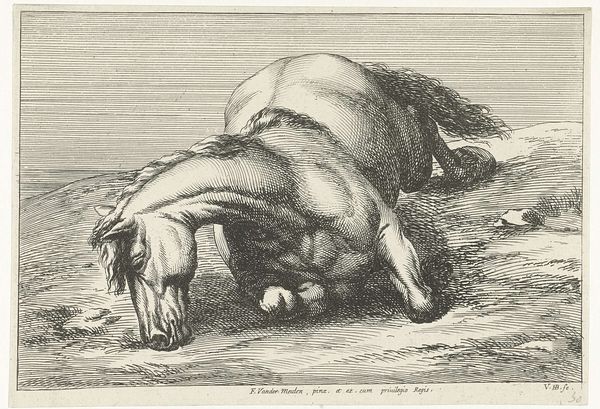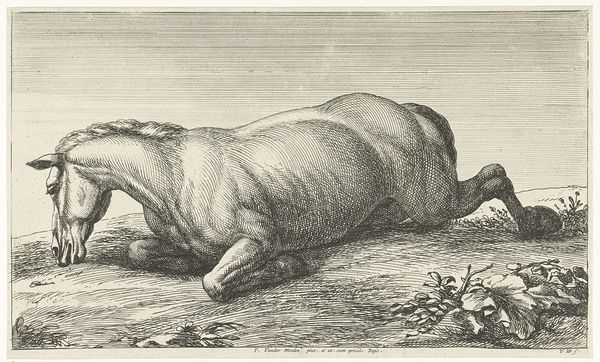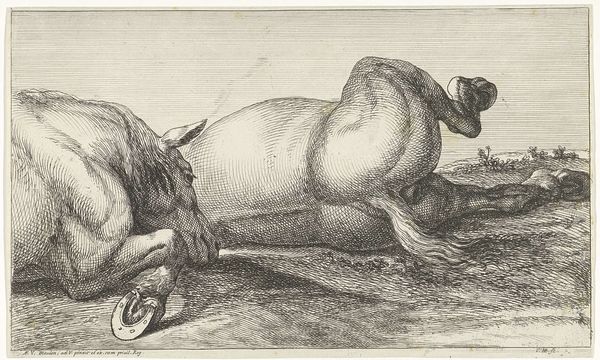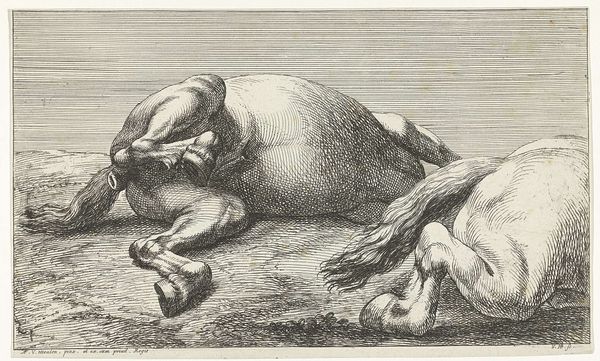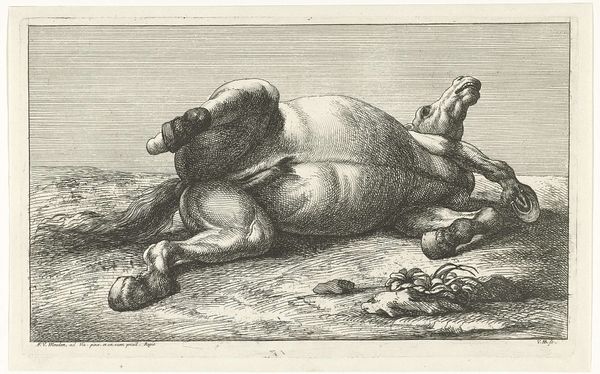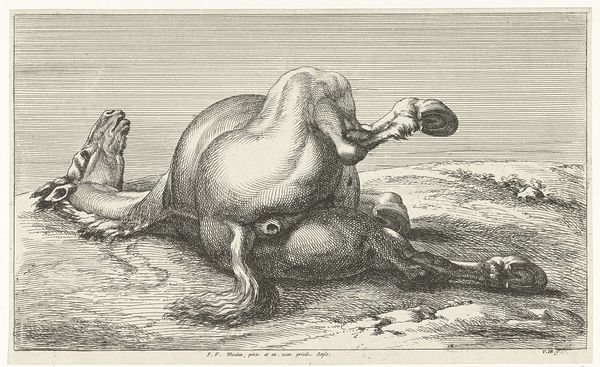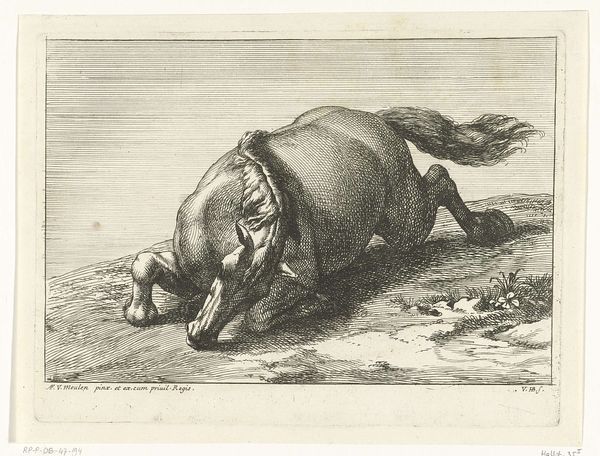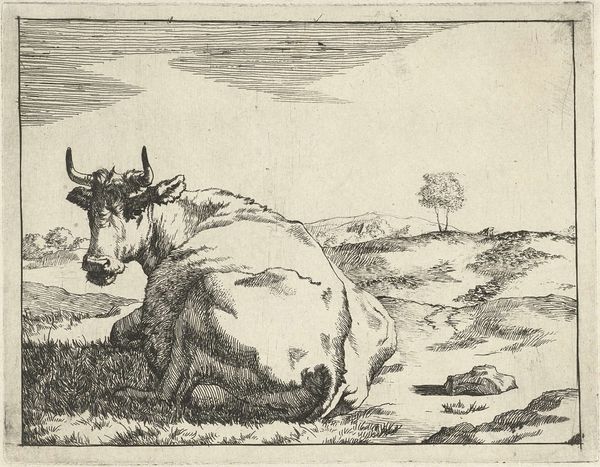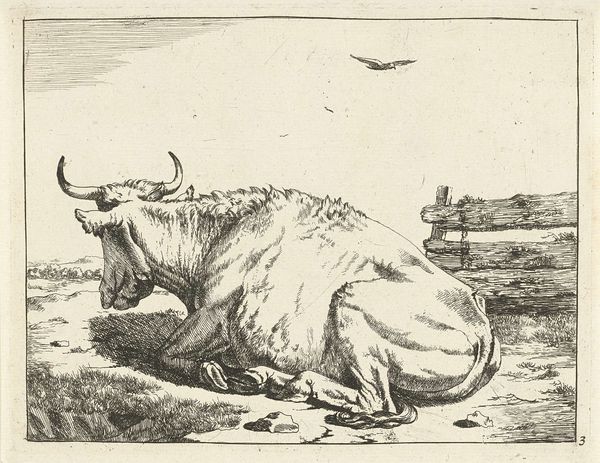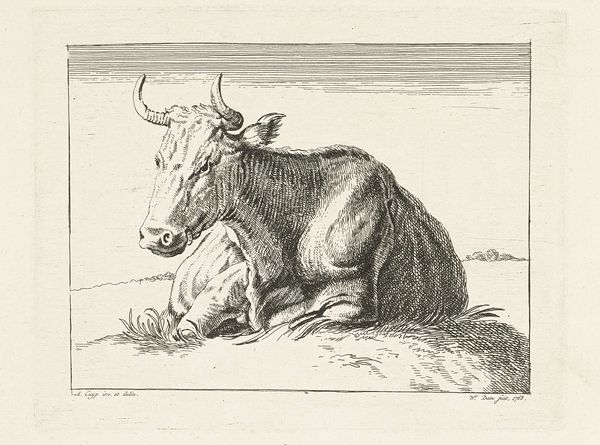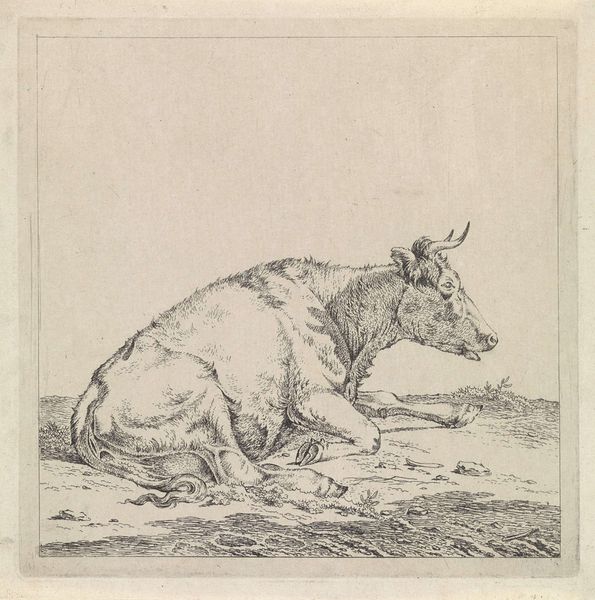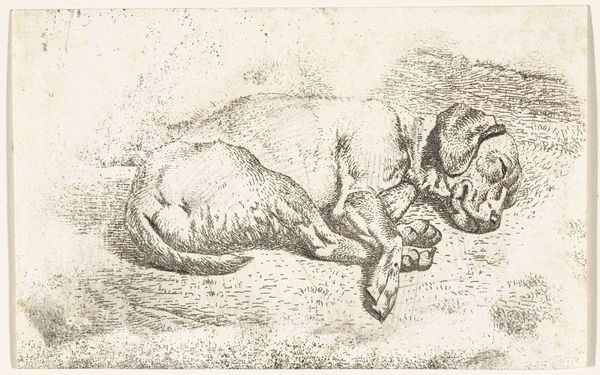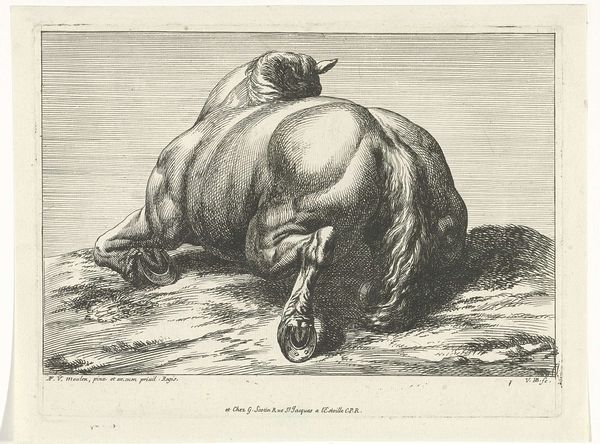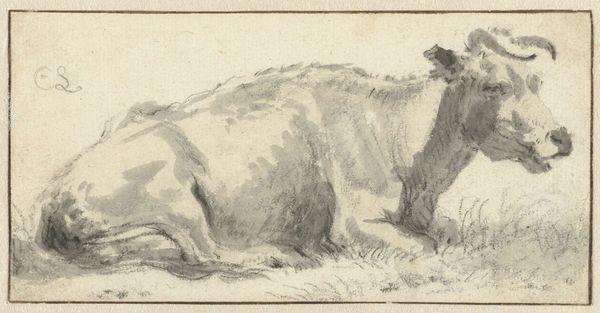
drawing, engraving
#
drawing
#
baroque
#
animal
#
landscape
#
figuration
#
engraving
Dimensions: height 180 mm, width 257 mm
Copyright: Rijks Museum: Open Domain
This print of a fallen horse was made by Jan van Huchtenburg, likely in the late 17th or early 18th century. It's an etching, a printmaking process that depends on the corrosive action of acid on a metal plate. The image gains much of its power from this method. To create it, Huchtenburg would have drawn through a waxy, acid-resistant ground, exposing the metal beneath. The plate was then immersed in acid, which bit into the exposed lines. This painstaking process, repeated as necessary, allowed for a great level of control over the depth and thickness of the lines. Look closely, and you'll see how Huchtenburg uses a dense thicket of etched marks to convey the horse's exhaustion. We see the weight of the animal, and, perhaps, the weight of battle. The medium, with its capacity to express subtle gradations of light and shadow, is integral to the print’s emotional impact. Ultimately, Huchtenburg’s mastery of the etching medium elevates this image from a simple depiction of a horse to a poignant statement about the toll of war.
Comments
No comments
Be the first to comment and join the conversation on the ultimate creative platform.
